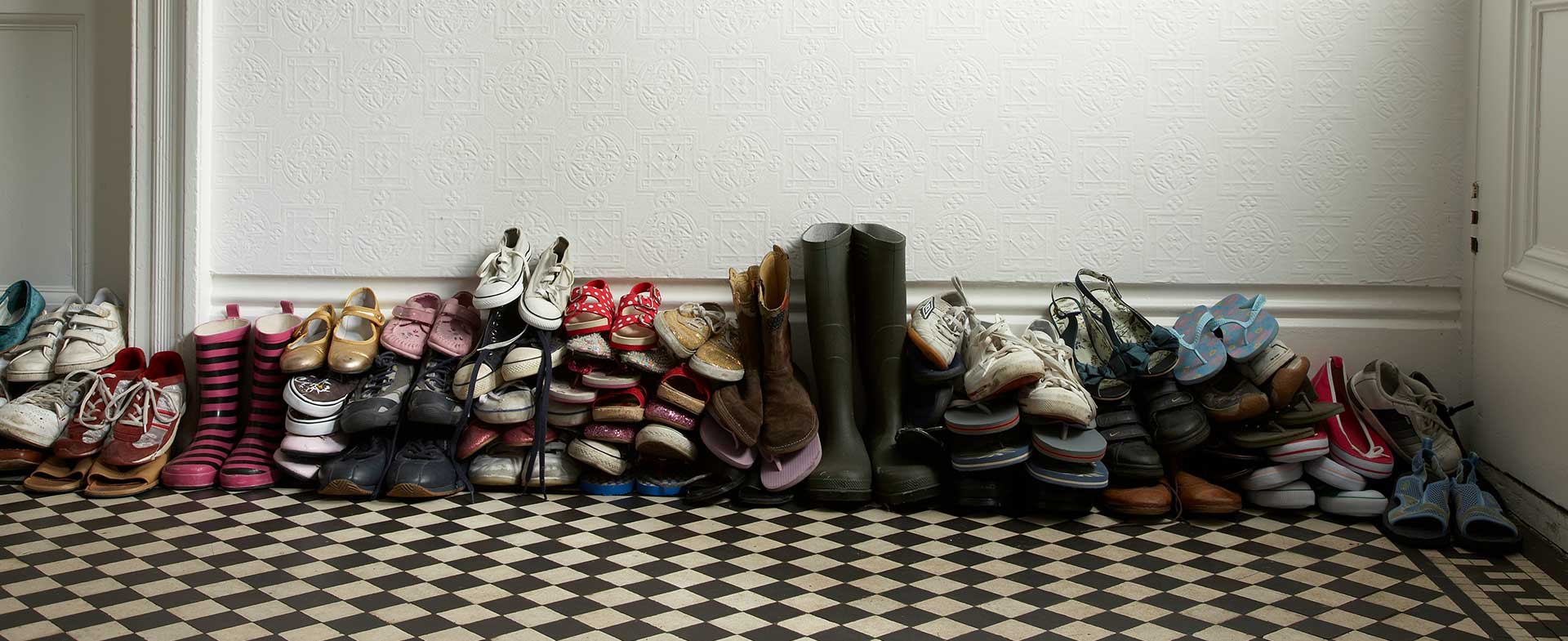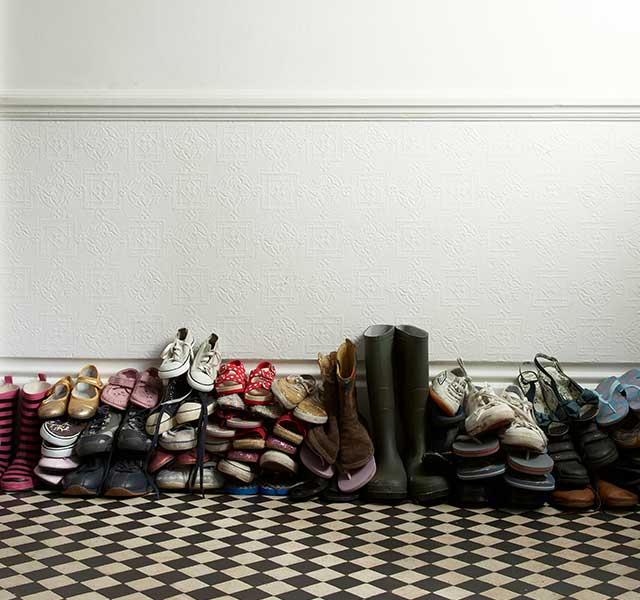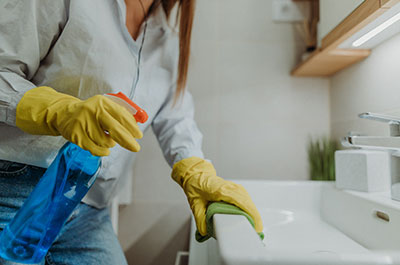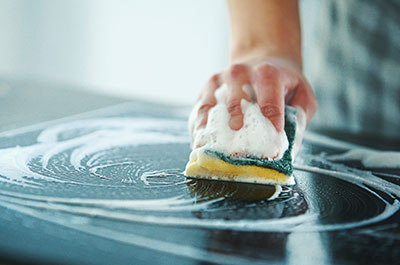You probably remove your shoes at the door if they’re dirty or wet. But do you take your shoes off in the house even when they look clean? And if you don’t, should you?
Anita Shallal, M.D., an infectious disease specialist at Henry Ford Health, explains why she always takes her shoes off at the door—and why you should, too.
Health Risks Of Wearing Outdoor Shoes Inside
So what are the benefits of removing shoes indoors? It’s not just about the obvious “ick” of dirt you might track throughout the house. Plenty of studies have found that your shoes carry all kinds of substances around that could be harmful to your health. Here’s what you should know:
Bacteria on floors gets on your shoes
Think about the surfaces you walk on every day. Did you visit a store, use a public restroom or walk around an office building? All those floors are teeming with germs—and your shoes pick them up with each step you take.
“Floors in public places are full of bacteria,” explains Dr. Shallal. “Studies have shown that the ground is home to billions of microbes, like fecal bacteria from dogs and birds. And it’s easy for these germs to hitch a ride on your footwear.”
As if animal poop isn’t bad enough, researchers have found plenty of other bacteria on public floors, including:
- Clostridioides difficile (C. diff), which can cause severe, life-threatening colon inflammation and diarrhea
- Escherichia coli (E. coli), a common germ that can lead to severe illness
- Methicillin-resistant Staphylococcus aureus (MRSA), a type of bacteria that survives treatment from many antibiotics and can cause sepsis or even death
Why should you care if there are germs on your floor? “When you walk through the door, the bacteria can come off your shoes and stick to your floors,” explains Dr. Shallal. “If you touch the floor with your hands and later touch your face, you’re putting those germs into your body.
Chemicals are lurking outside
Even if you don’t treat your lawn with pesticides or weed killers, there’s a good chance you walk through some of these chemicals anyway. Nearby farms, commercial buildings and even your next-door neighbor might use weed and insect killers. And if you wear your shoes in the house, you’re inviting those chemicals in for a party.
“Exposure to certain fertilizers and herbicides can cause breathing problems, nausea and vomiting in higher amounts,” says Dr. Shallal. “Your shoes might only bring in small amounts, but there’s no way to know how much you’re exposed to over time.”
Removing shoes can reduce allergens
During the spring, summer and fall months, grass and tree pollen are everywhere. Those tiny pollen particles could lead to sneezing, sniffling and wheezing for people with allergies or asthma.
“We can’t avoid all allergens, but we can minimize how much we have in our house,” says Dr. Shallal. “Keeping shoes at the door means you won’t be tracking additional pollens, molds and other allergens inside.”
Heavy metals hang around
Lead is a heavy metal that can harm a child’s brain and nervous system development. Lead-based paint can chip off buildings and sink into soil and lawns, where it lingers for years.
“Lead doesn’t break down, so if it’s in the soil, it can stay there indefinitely,” says Dr. Shallal. “When you walk in lead-contaminated areas, your shoes can bring tiny particles into your house. If children touch the floor and put their hands in their mouths, they could be ingesting small amounts of lead. And no amount of lead is considered safe.”
Tips For Enforcing A No-Shoes Policy
It might feel awkward to ask guests to remove their shoes when they come in. Still, keeping germs, chemicals and lead away from you and your loved ones is worth the discomfort.

“You can help people feel more comfortable by offering disposable shoe covers or slippers,” suggests Dr. Shallal. “It’s also helpful to have a chair or bench at the door so people can sit down to take their shoes off.”
Indoor Shoes vs. Outdoor Shoes
Banning shoes in your house doesn’t mean you should walk around indoors without support. To keep your feet healthy, designate one pair of shoes for indoor use only.
“Keep a clean pair of shoes near your door that you can slip on when you come inside,” says Dr. Shallal. “Wearing indoor shoes can help you avoid foot injuries and conditions like plantar fasciitis. Don’t let those shoes out of your house, even just to run outside for a minute.”
Clean Up Contaminated Floors
If someone does tread through your house with shoes on, do damage control after they leave. Start by cleaning hard floors with a wet mop and mild disinfectant. “Avoid dry sweeping, which can kick allergens and lead dust into the air,” suggests Dr. Shallal. “Clean carpets with a vacuum, preferably one with a HEPA filter if you have one.”
Don’t Forget Handwashing
Your shoes aren’t the only thing touching all kinds of dirty surfaces. Your hands also pick up germs as you go about your day, which is why handwashing is essential for a healthy home.
“Get into the routine of removing your shoes when you walk through the door and immediately washing your hands,” suggests Dr. Shallal. “A shoe-free house, combined with clean hands, can help you avoid illness year-round.”
Reviewed by Anita Shallal, M.D., an infectious disease specialist and internal medicine physician who sees patients at Henry Ford Hospital in Detroit.



